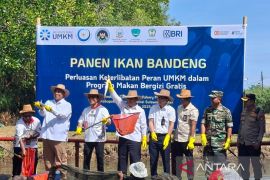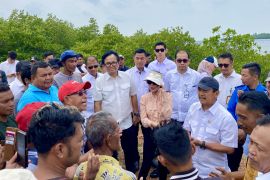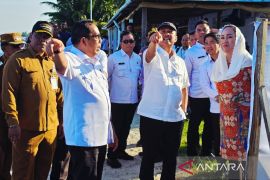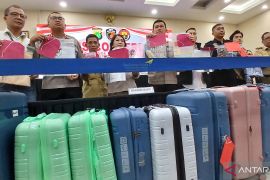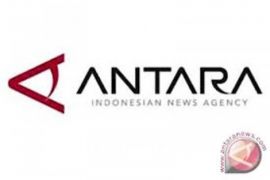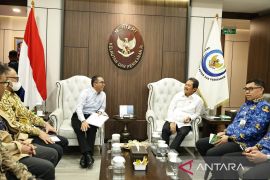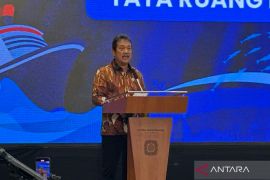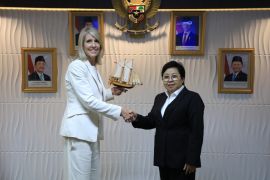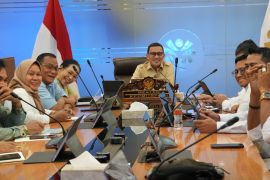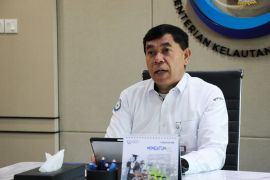It is because the country has a large maritime territory, spread over 5.8 million sq km of archipelagic waters and territorial seas, with many special economic zones (SEZs).
In the face of declining global fisheries resources, Indonesia is focusing on sustainable management of such resources in order to achieve balanced economic development.
The effort to achieve balanced economic development is in line with the four pillars of national economic development, namely pro-growth, pro-job, pro-poor, and pro-environment.
According to Marine and Fisheries Minister Sharif Cicip Sutardjo, Indonesia has immense potential in aquaculture and inland water fisheries.
The Indonesian marine and fisheries policy is aimed at eradicating poverty, providing jobs, and boosting national growth in a sustainable manner for the welfare of the nation`s people.
Speaking to the press on Friday after opening the "International Conference of Aquaculture Indonesia" (ICAI 2012) in Semarang, Central Java, Sutardjo said aquaculture production is projected to reach 9.42 million tons by the end of this year, up 35 percent from 2011 figures.
"Besides, the marine and fisheries sector in 2014 is expected to contribute Rp65.84 trillion to the national gross domestic product (GDP), a 6.75 percent increase compared with the Rp50.70 trillion recorded in 2010," he stated.
Therefore, Sutardjo pointed out, the government was making efforts to industrialize the nation`s marine and fisheries sectors through integrated upstream and downstream production.
He said the industrialization of Indonesia`s marine and fisheries sectors would be accelerated by eight key factors, "which should be completely supported by the government, the people, and the business community".
"The eight key factors are guaranteed availability of marine resources; adequate facilities and infrastructure; innovation and application of technology; high added value of marine and fisheries commodities; reliable and competent human resources; well-managed market; investment support from the business community; and favorable government regulation," Sutardjo continued.
He noted that the main objective behind industrializing the marine and fisheries sectors was to support the four pillars of national development, namely pro-growth, pro-job, pro-poor, and pro-environment.
"However, the industrialization of marine and fisheries should not happen at the expense of the sustainability of natural resources and the environment," Sutardjo said.
"In order to achieve the sustainability goals, the Marine and Fisheries Ministry will continue to optimize the management and development of fishing ports, which are the hubs of fisheries business activities," he stated.
In 2013, the ministry will implement the industrialization program at 11 locations, including five tuna-fishing ports.
"In an effort to help fisheries businessmen operate more independently, my ministry will deploy around 8,000 fisheries experts as counselors across the country," Sutardjo said.
Meanwhile, Maritime and Fisheries Affairs Ministry (KKP) secretary general Gellwyn Jusuf stated recently in Batam that Indonesia "receives more income from cultivated fish than from those caught in the sea".
He said the country turned out five million tons of cultivated fish compared to three million tons of the fish from the sea annually.
"Over the past 10 years, global fish production has been declining gradually, so many countries, including Indonesia, cannot fully depend on the catch from the sea alone to ensure their food security," Jusuf pointed out.
"Therefore, Indonesia must optimize and preserve its fisheries resources by implementing proper management policies that are aimed at ensuring sustainability through improved aquaculture production," he explained.
"We cannot expect much from our fishing activities in the sea and, therefore, we need to improve the competitiveness of our fish products," Jusuf pointed out.
He also expressed hope that Indonesia could increase the production of processed fish for export.
However, on November 23, Sutardjo said in Semarang that the value of fish exports from Indonesia was much less than some of its neighboring countries.
"Our fish exports have so far been able to reach around US$4.5 billion per year, but we are lagging behind Thailand and Vietnam," he said.
"The total export value of fish from Thailand has reached at least US$8 billion, while in case of Vietnam it is more than US$5 billion," Sutardjo pointed out.
"This is disappointing, because Indonesia has immense potential in the marine and fisheries sector, particularly in aquaculture production," he noted.
"Indonesia`s aquaculture production potential is approximately 6-7 million tons per year, which is likely to increase every year," Sutardjo said.
In 2010, he added, the national aquaculture production reached 4.78 million tons. And in 2011, it rose sharply to 7.9 million tons, while the Marine and Fisheries Ministry`s target was only 6.8 million tons.
"Our aquaculture production this year is projected to reach 9.42 million tons, up 35 percent from the 2011," the minister stated, adding that fish was a major source of food globally.
Therefore, he said the government was developing and implementing strategies to develop the fisheries sector and increase the production of "more marketable and high-value products in the international market".
"In order to make our fisheries products more marketable, the Marine and Fisheries Ministry has made every effort to encourage the production of value-added commodities, improve the transportation and logistics system, follow ethical practices, and take part in international exhibitions for improved global networking," Sutardjo explained.
Besides, he added, the government was also committed to empowering coastal communities by providing them with capital, training and consultation. (*)
Reporter: Otniel Tamindael
Editor: Otniel Tamindael
Copyright © ANTARA 2012
